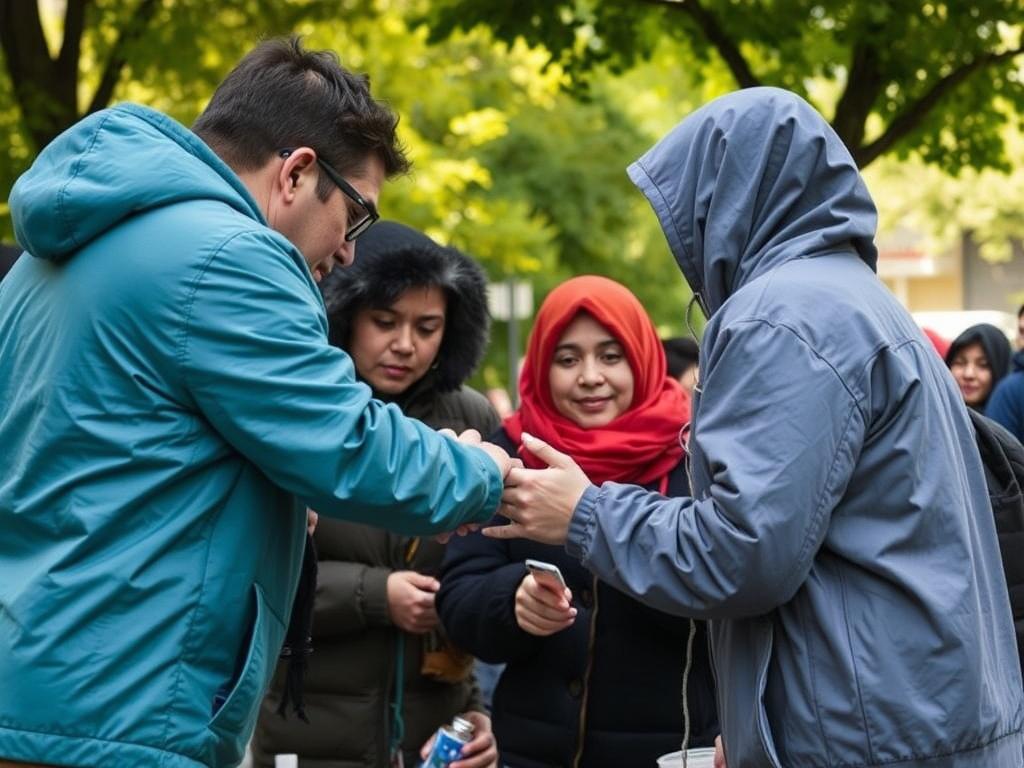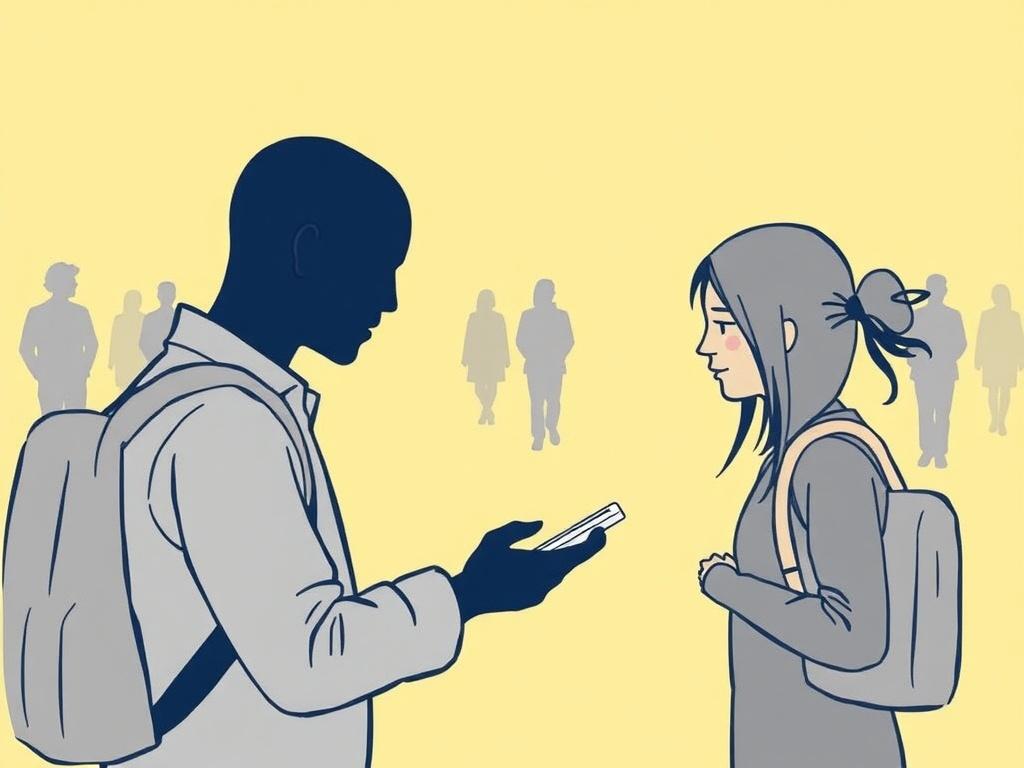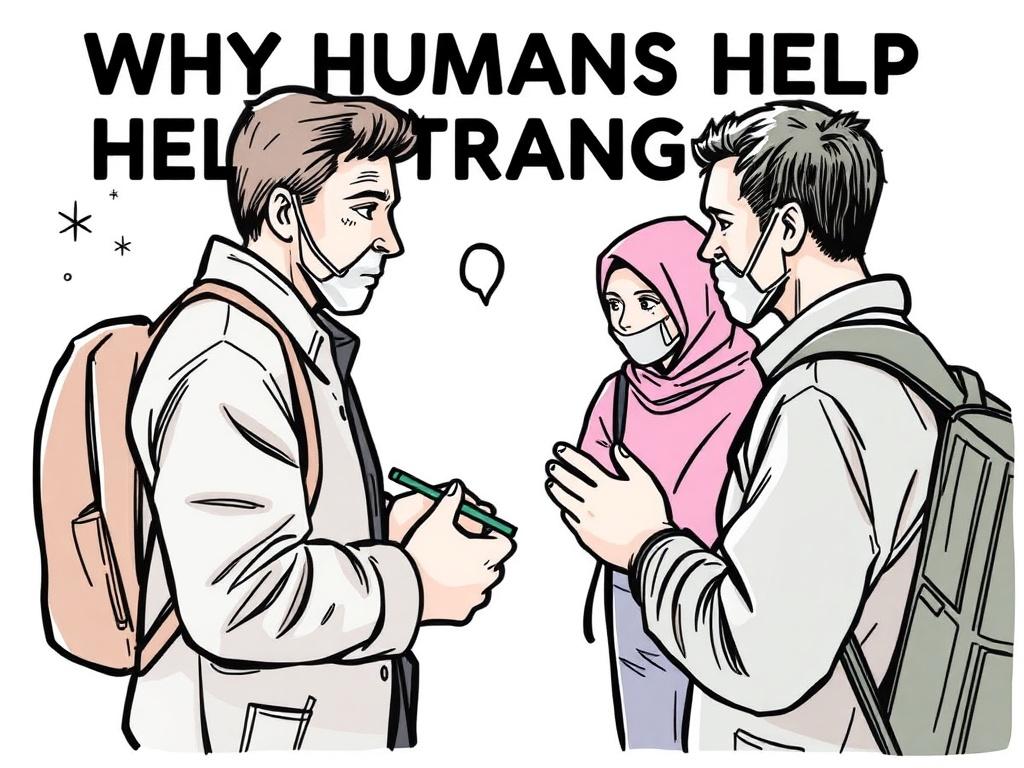Have you ever wondered why people go out of their way to help strangers, sometimes at great personal cost? From giving directions to offering a helping hand during emergencies, humans often demonstrate kindness towards those they don’t even know. This behavior raises fascinating questions: Why do humans help strangers? What triggers this urge to assist others when there’s no apparent gain? In this article, we’ll delve deeply into the psychology, biology, culture, and social factors that explain this unique human trait. We’ll also explore different theories and examples that shed light on this age-old mystery.
The Biological Roots of Helping Strangers
Human beings, like many animals, have evolved to live in social groups. Our survival historically depended on cooperation and mutual support. But how does this translate into helping people we don’t know personally? Several biological factors play a crucial role.
One major influence is the concept of empathy—our ability to feel and understand the emotions of others. Empathy activates certain areas in our brain, prompting us to respond to others’ needs, even if those others are strangers. Studies using brain imaging technology show that when we witness someone in distress, the same brain regions that process our own pain light up, motivating us to offer help.
Another biological factor is the release of “feel-good” chemicals, such as oxytocin and dopamine, when we help others. These chemicals reinforce prosocial behavior by making us feel happy and rewarded, encouraging us to assist others again in the future. This mechanism helps explain why many people describe helping others as a rewarding or even addictive experience.
Altruism vs. Self-Interest: What Motivates Us?
The debate between altruism and self-interest is central to understanding why humans help strangers. On one hand, altruism is defined as acting to benefit someone else without expecting anything in return. On the other hand, some argue that humans help because of indirect personal benefits, such as social approval or future reciprocation.
Here’s a simple table outlining the main arguments from both sides:
| Altruism Perspective | Self-Interest Perspective |
|---|---|
| Helping is genuine concern for others’ wellbeing. | Helping is motivated by potential rewards or recognition. |
| We help strangers even when no benefit is obvious. | We expect indirect benefits, like reciprocal help or enhanced reputation. |
| Empathy drives us to act without expecting rewards. | “Warm-glow” feeling is a personal reward rather than pure altruism. |
While both perspectives offer valid insights, the truth likely lies somewhere in the middle. Humans may feel a genuine emotional impulse to help but are also influenced by subconscious calculations about costs and benefits.
Psychological Theories Behind Helping Behavior

Psychologists have developed several theories to explain why humans help strangers. Understanding these can give us a clearer picture of this complex behavior.
1. The Empathy-Altruism Hypothesis
This hypothesis suggests that when we empathize with someone, we experience an emotional connection strong enough to motivate altruistic behavior. In other words, feeling another’s pain compels us to reduce their suffering simply because we care, not because of any added benefit.
2. Social Exchange Theory
According to Social Exchange Theory, all human interactions are transactions aimed at maximizing rewards and minimizing costs. When deciding to help a stranger, we subconsciously weigh the potential benefits (like feeling good or earning gratitude) against the costs (like time or effort). If the perceived benefits outweigh the costs, we’re more likely to help.
3. The Bystander Effect and Diffusion of Responsibility
Interestingly, sometimes humans don’t help strangers in emergencies due to the bystander effect. This occurs when multiple people witness an event but assume someone else will act. The diffusion of responsibility reduces individual motivation to intervene, highlighting that context influences helping behavior.
Social and Cultural Influences on Helping Strangers
Helping behavior is not only biologically and psychologically driven but also shaped by social norms and cultural expectations. Different cultures have diverse attitudes toward helping strangers.
How Culture Shapes Helping
Collectivist societies, where group cohesion and interdependence are valued, often encourage helping strangers as a moral obligation. In contrast, individualistic cultures might emphasize personal responsibility and independence, sometimes making us less inclined to intervene without personal connection.
Let’s look at some examples in a list format:
- Japan: Emphasizes respect and harmony, so people often help strangers quietly and respectfully.
- United States: Encourages volunteerism and community service, promoting helping behavior in many forms.
- India: Social traditions value charity (dāna), encouraging assistance to those in need.
- Nordic countries: Well-known for high social trust, which correlates with strong expectations of helping others.
Role of Social Norms and Reciprocity
Social norms also play a vital role in encouraging people to help strangers. Norms like the “Golden Rule” or expectations of reciprocity create a sense of duty. When people grow up in environments that reinforce these norms, they’re more likely to practice kindness toward unknown individuals.
The Impact of Technology and Modern Society on Helping Strangers

In today’s digital age, our interactions with strangers have changed dramatically. Technology offers new ways to help, but it can also create barriers.
Positive Side of Technology
Online platforms, social media, and volunteer apps make it easier to connect with people in need. Crowdfunding campaigns, emergency alerts, and community forums allow strangers thousands of miles apart to assist each other swiftly and effectively.
Challenges Posed by Technology
At the same time, digital communication can reduce face-to-face interactions, potentially dampening empathy and spontaneous helping. People may feel less connected to anonymous others online, which can decrease motivation to help.
Examples of Humans Helping Strangers in Real Life

The examples we witness every day can inspire us and illustrate why humans help strangers. Here are a few captivating stories:
- Heroic acts in disasters: Strangers banding together during earthquakes, floods, or fires to rescue and support victims.
- Random acts of kindness: From paying for someone’s coffee to helping a lost tourist find their way, small gestures show the human instinct to help.
- Good Samaritan law cases: Many countries encourage helping strangers by legally protecting those who intervene during emergencies.
These examples demonstrate that humans often respond with generosity and courage, making our societies stronger and more compassionate.
Why Some People Don’t Help Strangers
It’s also important to recognize that not everyone helps strangers. Factors like fear, mistrust, past experiences, or social conditioning can inhibit people from reaching out.
Fear of harm, uncertainty about the situation, or worries about legal consequences can deter people from intervening. Building awareness and education about the importance and safety of helping others can address these barriers.
The Evolutionary Perspective: How Helping Strangers Evolved
From an evolutionary standpoint, the tendency to help others, including strangers, offers survival advantages. Groups that cooperate tend to thrive better than those where individuals act selfishly.
Kin Selection and Group Selection
While kin selection explains helping relatives (to pass on shared genes), group selection suggests that groups with prosocial members are more likely to succeed as a collective. Helping strangers may be an extension of this principle, fostering trust and cooperation that benefit the whole community.
Reciprocal Altruism
Reciprocal altruism is the idea that helping strangers increases the likelihood they will help you in return, directly or indirectly. This strategy reinforces social bonds and mutual support beyond close relationships.
How We Can Encourage Helping Strangers
Understanding why humans help strangers is just the first step. Encouraging more kindness benefits society immensely.
Practical Ways to Foster Helping
- Education: Teach empathy and social responsibility from a young age.
- Role models: Share stories and examples of helping behavior.
- Community programs: Create safe, supportive environments that promote volunteerism.
- Reduce fear: Provide clear guidelines on safe interventions.
- Promote social trust: Build connections across diverse groups.
When communities prioritize empathy and support, helping strangers becomes a natural and expected part of everyday life.
Summary of Key Reasons Why Humans Help Strangers
To recap, several interconnected reasons explain why humans help strangers:
| Reason | Description |
|---|---|
| Empathy | Feeling others’ pain motivates assistance. |
| Biological Rewards | Helping triggers feel-good chemicals reinforcing behavior. |
| Social Norms | Culture and expectations encourage helping. |
| Evolutionary Advantage | Cooperation benefits group survival and promotes trust. |
| Reciprocity | Helping strangers may lead to future mutual aid. |
| Personal Fulfillment | Helping others provides meaning and purpose. |
Conclusion
Why humans help strangers is a rich and multifaceted question grounded in biology, psychology, culture, and evolution. Our capacity for empathy, the biological rewards we receive, social norms, and the benefits of cooperation all contribute to this remarkable aspect of human nature. While sometimes influenced by self-interest, the urge to assist unknown others often reflects a genuine and deeply ingrained impulse toward kindness and community. Understanding these motivations not only helps explain everyday acts of generosity but also encourages us to nurture this trait within ourselves and society. After all, in a world that can sometimes feel divided, our willingness to help strangers connects us and reminds us of our shared humanity.




















